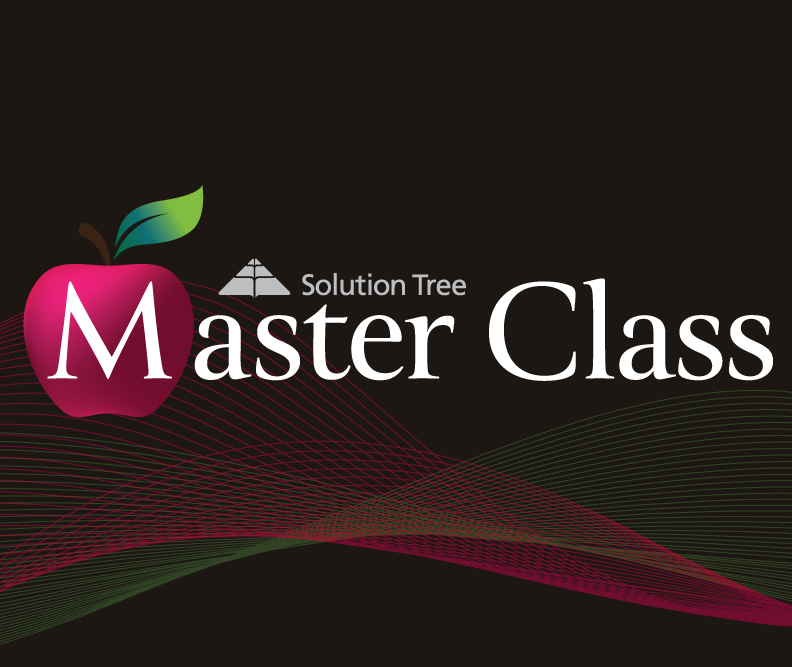Solution Tree Master Class: The Science of Reading
- Participants have full access to sessions for 365 days after activation.
Solution Tree Master Class: The Science of Reading
The COVID-19 pandemic brought a long-standing challenge in U.S. schools to the forefront: more than two-thirds of students cannot read at grade level. Alarmingly, if students are not proficient in reading by the end of third grade, they are more likely to drop out. This realization has sparked a growing interest in the science of reading, a decades-long body of interdisciplinary research that examines the multifaceted nature of reading development. By embedding the science of reading into instructional practices, teachers can ensure students recognize words and understand their meaning—thus supporting reading fluency.
Since 2013, thirty-eight states and the District of Columbia have passed legislation and mandates aligning with the science of reading. While the hope is that by classrooms shifting to evidence-based practices, students will become more proficient readers, the process is never simple. Thus, the Solution Tree Master Class: The Science of Reading can help school leaders and teachers align instruction with the five components of evidence-based reading instruction: (1) phonemic awareness, (2) phonics, (3) fluency, (4) vocabulary, and (5) comprehension. Led by three nationally recognized literacy experts, the virtual Solution Tree Master Class: The Science of Reading is a targeted mini-series, offering a thorough exploration into the science of reading. As a comprehensive body of research, the science of reading can support teachers and leaders at all grade levels and content areas—from elementary through high school.
By participating in the Solution Tree Master Class: The Science of Reading, school and district leaders and teachers will gain the knowledge and support necessary to align instructional practices with the science of reading. With access to expert presenters who have successfully implemented evidence-based reading strategies across diverse school and district settings, educators will be equipped with actionable strategies and practices to transform the literacy landscape of their classroom, school, or district.
This on-demand, virtual event delivers the same high-quality professional development experience expected from our in-person trainings—but with unbeatable flexibility. Build your science of reading knowledge and refine your skills at your own pace.
Participants will subscribe to the full mini-series of 90-minute sessions, and personalize their learning experience by engaging in topic-specific science of reading strands for unlimited, 365-day viewing access: (1) Understanding the Science of Reading, (2) Embedding the Science of Reading in High-Impact Literacy Instructional Tools, Strategies, and Practices, or (3) Using Collaboration to Power the Science of Reading.
Participants will:
- Understand today’s literacy landscape and why literacy matters
- Grasp key science of reading terminology, including its five components
- Discover Scarborough’s reading rope and its implications for instruction
- Obtain strategies to embed each science of reading component into instruction
- Explore the power of teams to help:
- Stay informed on the ever-growing body of research related to the science of reading
- Ensure a guaranteed and viable curriculum
- Manage the scope of literacy learning
- Deconstruct standards to reconstruct a progression of learning
- Assess and monitor student reading achievement
- Analyze data to support each student in reaching proficiency
- Determine the effectiveness of individual instructional practices
- Support a multitier system of support
- Develop an action plan for students who need intensive support
- Gain effective instructional tools and templates to use before, during, and after reading
- Learn tips for teaching reading skills for long-term memory
- Examine essential reading skills to teach across grade levels
- Build a culture of literacy and comprehension
Reading introduces students to worlds and adventures they would otherwise never experience—like casting spells with Harry Potter, walking the lands of Narnia with Aslan, and trekking to Mount Doom with Frodo and Sam. By embracing research-based, science-informed instructional strategies, teachers ensure that students acquire the transformative skill of reading.
Learn from leading experts
Block 1 — Paula Maeker
The Work of Literacy T.E.A.M.S. in Support of the Science of Reading — Preview
T: Teams Take Collective Responsibility and Work Interdependently Building a Commitment to Learning in Students — Preview
E: Teams Ensure a Guaranteed and Viable Curriculum — Preview
A: Teams Assess and Monitor Student Reading Achievement With Ongoing Assessment — Preview
M: Teams Measure Effectiveness of Individual and Collective Teacher Practices — Preview
S: Teams Support Systematically With Targeted Acceleration, Interventions, and Extensions — Preview
Block 2 — Molly Ness
Block 3 — LeAnn Nickelsen
The Bigger Picture: Literacy Across All Content Areas — Preview
Before Reading Tools and Strategies: Teaching Skills and Strategies — Preview
Before Reading Tools and Strategies: Priming the Brain and Activating Prior Knowledge — Preview
During Reading Tools and Strategies: The Thinking Job — Preview
During Reading Tools and Strategies: Student Self-Monitoring — Preview
After Reading Tools and Strategies: Discussions — Preview
After Reading Tools and Strategies: Writing and Concluding Statements About the Literacy Triangle — Preview
Participation Information
Attendees will print their own certificates after completion on the virtual platform.





